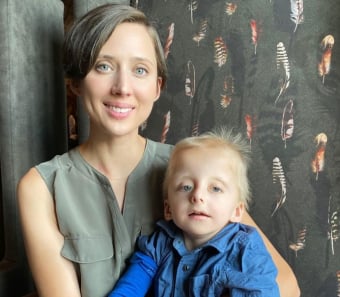Greenwood Diagnostic Labs’ WES test captures the entire exome with additional coverage for genes with known Mendelian disease associations. The average read depth for each exome is typically greater than 150X. The analysis and curation of variants is driven by the patient’s reported phenotype. Any variants included in the report are confirmed with Sanger sequencing. The standard WES test includes trio analysis with parents. Samples from siblings can be submitted in place of a parental specimen or in addition to parental samples. (Please note there may additional costs for submitting more than 2 family members in addition to the proband.) Singletons and duos will also be accepted if appropriate family member samples are not available. There is no default option for secondary findings. Patients and families must select whether or not to receive this information as part of the analysis. Each sample submitted as part of the WES analysis must be accompanied by a separate consent and requisition form.
10 weeks
Singleton Analysis: 81415 Duo Analysis: 81415, 81416 Trio Analysis: 81415, 81416x2 Reanalysis: 81417
Contact Lab
Next Generation Sequencing
In our experience, greater than 30% of patients have a pathogenic or likely pathogenic finding consistent with the reported phenotype. We recommend further array-based testing to more accurately address the concerns of dosage alterations. The Cytogenetic Laboratory at GGC offers a high resolution whole genome SNP microarray. The GGC Diagnostic Laboratory Directors are available for further consultation regarding the limitations of the NGS and array testing procedures.
The preferred sample type is peripheral blood collected in an EDTA (purple top) tube - at least 2-3ml for pediatric patients and 5-6ml for adult patients. Saliva and extracted DNA are also acceptable sample types. Saliva samples must be submitted in an approved saliva kit. Contact the lab to receive a saliva kit or to have one sent to your patient.
The specimen should be kept at room temperature and delivered via overnight shipping. FedEx is preferred. If shipment is delayed by one or two days, the specimen should be refrigerated and shipped at room temperature. Do not freeze the specimen. Samples collected on Friday can be safely designated for Monday delivery.
If prenatal whole exome sequencing is desired for ultrasound findings, please see the prenatal exome sequencing test page. If prenatal diagnosis is desired for a known pathogenic familial mutation, targeted testing is available. Additional fees for cell culture and maternal cell contamination may apply. Maternal cell contamination studies are required for all prenatal molecular tests. Contact the laboratory prior to sending a prenatal specimen.
Call our laboratory at 1-800-473-9411 or contact one of our Laboratory Genetic Counselors for assistance.
Robin Fletcher, MS, CGC
Falecia Thomas, MS, CGC
Alex Finley, MS, CGC
